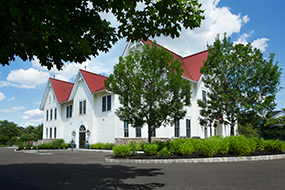Forced Arbitration of elder abuse in nursing homes was recently dealt a necessary blow.
On September 28, 2016 a federal agency that controls Medicare and Medicaid dollars took action to prevent nursing homes from forcing claims of personal injury, elder abuse, sexual assault and even wrongful death into Arbitration. This is great news for victims of abuse and neglect in nursing homes preserving the right to a Jury trial prescribed by the 7th Amendment.
We blogged back in November of 2015 about the dangers of forced Arbitration agreements in contracts. https://www.barattarussell.com/blog/beware-may-rights-think/#more-522
The dangers of private arbitration include:
- The proceedings are expensive – a plaintiff has to pay her own lawyer, the costs for experts time AND for the Arbitrator’s time in all pre-trial and trial proceedings.
- The proceedings confidential and not appealable – so mistakes and bias toward the regular users of arbitration (i.e.nursing homes) are inherent in the process.
Private Arbitration from which there is no appeal is an affront to our rights as citizens, guaranteed by the 7th Amendment of the Constitution, to a Jury trial.
Thomas Jefferson said: “I consider trial by jury as the only anchor ever yet imagined by man, by which a government can be held to the principles of its constitution.”
Yet, this new victory for our precious seniors is limited. The preclusion of forced arbitration agreement applies only to “Skilled Nursing Facilities” (“SNF”) and not in “Personal Care Homes” (“PCH”),formerly known as assisted living facilities, because Medicare/Medicaid does not fund those.
Anyone entering a personal care home may still be forced to sign an Arbitration agreement.
A parent may either enter a SNF or PCH on their own volition or by an Agent exercising a Power of Attorney. Each SNF or PCH has its own admission agreement and the agreements are very complicated and complex.
In addition to forcing client into a forced arbitration, many traps exist for seniors. SNF and PCH ask extensive questions about assets and income and these agreements are meant to provide SNF and PCH not only with information but also an ability to unilaterally access said assets and income. Additionally, Pennsylvania law provides that children may be liable for any unpaid SNF or PCH charges. SNF and PCH are very aggressive with their collection actions.
Knowledge is the best weapon against the loss of a senior’s rights in these situations. A Power of Attorney “POA” may be drafted in a way that prohibits an agent from waiving the constitutional right to a jury or requiring a lawyer to review admission documents prior to permitting the POA Agent to execute the agreement.
An admission to a SNF or a PCH should not require a waiver of a senior’s rights which may be their only ability to address what could be an egregious situation.
The SNF or PCH can use their superior knowledge of the system and admission power to remove the rights of seniors. This is particularly noteworthy in the case of forced arbitration provisions where the expense, the private arbitrator’s bias towards the regular users of private arbitration and inability of a court to review mistakes of the arbitrator are significant reasons to not waive a right to a courtroom and a jury.
If a parent is injured due to institutional neglect or abuse, it is important that the community (a jury) have the opportunity to weigh that conduct and the harm caused to render the appropriate judgment. Only then, when such matters are open to the scrutiny of the community will our seniors be made safer.
If you have any questions regarding nursing home arbitration and/or elder abuse, please feel free to contact either Ken Russell of Tony Baratta at 215.914.2222.
Tony Baratta is a trial attorney in Huntingdon Valley, PA who represents clients who have been seriously injured. Tony is a founding partner of Baratta, Russell, & Baratta and a member of the Pennsylvania Brain Injury Association (BPIA). Tony is on the board for the Philadelphia VIP, a member of the Million Dollar Advocates Forum for trial attorneys and voted one of Philadelphia’s Super Lawyers for the past 10 years.
Ken Russell is a founding partner of Baratta, Russell & Baratta and heads up the Estate planning and Administration department. Ken has assisted many clients with Elder law and Long Term Care Planning issues as well as estate planning, trusts and estate administration matters. Ken specializes in working with his clients to make sure that as much of their wealth passes down as possible.

